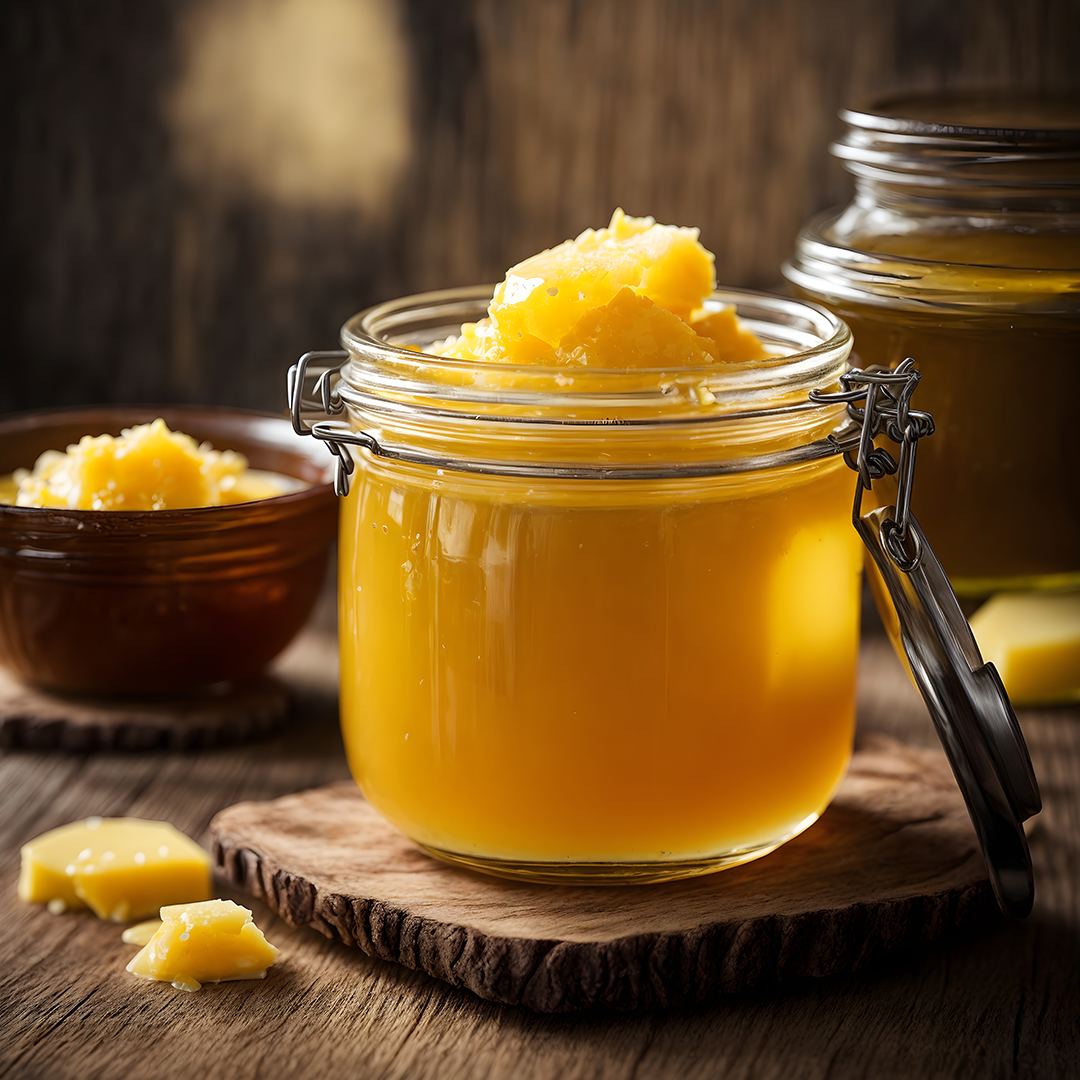As temperatures soar during the summer months, your body’s nutritional needs change significantly. It craves hydration, cooling foods, and lighter meals. But there’s one thing you might not be thinking about: refined sugar. While it may seem harmless to sweeten your iced tea or chilled desserts with sugar, doing so might be silently harming your health.
On the other hand, there's a traditional sweetener that's been used in Indian households for centuries jaggery. Surprisingly, jaggery could be a far better choice in the heat, especially when compared to sugar. So, let’s dive deep into the "Jaggery vs Sugar" debate and explore why you should avoid sugar but not jaggery in summer.
What Is Sugar?
Sugar is a highly refined sweetener that comes mainly from sugarcane or sugar beets. It goes through multiple chemical processes to become the white, crystalline substance we see in our kitchens. This processing strips away all nutrients, leaving behind empty calories that spike your blood sugar and offer zero health benefits.
Consuming sugar leads to a quick burst of energy — followed by a crash. It’s also linked to weight gain, inflammation, tooth decay, and in the long run, serious health issues like diabetes and heart disease.

What Is Jaggery?
Jaggery, also known as gur, is a traditional unrefined sweetener made by boiling raw sugarcane juice or palm sap until it solidifies. It is not bleached or refined and retains essential minerals like iron, magnesium, potassium, and small amounts of B vitamins.
Unlike sugar, jaggery doesn’t just provide sweetness — it offers nutritional benefits, making it a smarter and more holistic sweetening option. In Ayurveda, jaggery is considered a natural detoxifier, a digestive aid, and even a cooling agent when used properly in summer.
Read Also- Why Jaggery Is a Natural Sweetener for Spring Detox Plans
Difference Between Sugar and Jaggery
The core difference between sugar and jaggery lies in their processing, nutritional value, and effect on the body.
|
Factor |
Sugar |
Jaggery |
|
Processing |
Highly refined and bleached |
Natural, unrefined |
|
Nutritional Content |
Empty calories |
Contains iron, calcium, and magnesium |
|
Glycemic Index |
High |
Medium (Still needs moderation) |
|
Health Effects |
Causes blood sugar spikes |
Offers minerals and supports digestion |
|
Taste |
Sweet, neutral |
Earthy, rich, slightly caramel-like |
Read Also - Jaggery vs Sugar – Which One Should You Be Using Daily?
Reasons To Avoid Sugar in Summer
In summer, your body is already stressed due to high temperatures, dehydration, and electrolyte imbalances. Adding sugar to this mix only worsens the situation.
1. Increases Body Heat
Refined sugar is known to increase internal body heat. This can aggravate symptoms like headaches, fatigue, skin irritation, and digestive discomfort — all of which are already more common in the hot season.
2. Promotes Dehydration
Sugar increases water loss from the body, especially when consumed in the form of sugary drinks. This can lead to faster dehydration and electrolyte loss, causing fatigue and heat exhaustion.
3. Spikes Blood Sugar Levels
Sugar causes a rapid spike in blood sugar levels, followed by a sudden crash. This can leave you feeling lethargic and low in energy — the opposite of what you need on hot, draining summer days.
4. Inflammatory and Addictive
Sugar triggers inflammation in the body and has addictive properties that can lead to cravings, weight gain, and mood swings. In summer, this creates unnecessary stress on your already taxed system.

Reasons to Use Jaggery in Summer
Switching from sugar to jaggery in summer can offer your body a gentler, more supportive source of energy.
Natural Cooling Effect
When consumed in moderation, jaggery has a cooling effect on the body. Unlike sugar, it doesn't increase body heat. In fact, in Ayurveda, jaggery is often recommended with cold water or lemon juice in summer to beat the heat naturally.
Rich in Minerals
Jaggery contains iron, potassium, and magnesium, which are essential for replenishing minerals lost through sweat. This helps you maintain electrolyte balance and avoid fatigue.
Supports Digestion
Summer heat can disturb digestion, but jaggery helps stimulate digestive enzymes, easing bloating and constipation. A small piece of jaggery after meals can do wonders for your gut health.
Benefits of Using Jaggery in Summer
Boosts Energy Without Crashes
Unlike sugar, jaggery offers slow-releasing carbohydrates. It provides sustained energy without the crash, making it perfect for summer workouts, travel, or daily routines.
Detoxifies the Body
Jaggery helps cleanse the liver and flush out toxins. With pollution and processed food intake rising, this sweetener acts as a natural detox agent.
Improves Skin Health
The minerals in jaggery help maintain healthy skin, which often suffers during summer due to sun damage and dehydration. Jaggery promotes blood purification, which reflects as clear, glowing skin.

Dosage of Jaggery in Summer
Even though jaggery is a healthier option, moderation is key. Ideally, 5–10 grams per day is enough for adults during summer. Overconsumption can still lead to excess calorie intake or a spike blood sugar, especially in diabetics.
Best Ways to Consume Jaggery in Summer
You can easily incorporate jaggery into your summer diet in fun and cooling ways:
-
Jaggery Lemonade: Replace sugar with crushed jaggery in lemon water for a cooling summer drink.
-
Jaggery with Buttermilk: Add a small piece of jaggery to buttermilk to boost electrolytes and digestion.
-
Jaggery Coconut Water Popsicles: Freeze coconut water mixed with jaggery and lemon for a hydrating treat.
-
Jaggery Sherbet: Combine jaggery with mint, black salt, and chilled water for an energizing summer drink.
-
Jaggery on Toast: Use melted jaggery instead of jam for a rich, earthy taste.
Is Jaggery Better for You Than Sugar?
Yes, absolutely. While both contain calories and should be consumed in moderation, jaggery offers significantly more health benefits than sugar. It’s rich in vital nutrients, supports digestion, prevents dehydration, and helps cool the body in summer.
In contrast, sugar does nothing but add empty calories, increase inflammation, and disrupt metabolic health. When comparing jaggery vs sugar, jaggery emerges as the clear winner — especially during the hot months.
Case Study: A Lifestyle Switch That Worked
Priya, a 38-year-old teacher from Texas, experienced constant fatigue and digestive issues every summer. On her nutritionist’s advice, she replaced all added sugar in her diet with organic jaggery — especially in her drinks and desserts.
Within a few weeks, she noticed fewer headaches, improved digestion, and increased energy levels. Her skin cleared up, and she even lost a few pounds. Now, jaggery is a permanent part of her summer pantry.
Where Should You Buy Jaggery?
Not all jaggery is created equal. Many commercially sold jaggery blocks are chemically treated, loaded with artificial colour, or processed in unhygienic conditions.
If you're looking for pure, chemical-free, and traditionally made jaggery, we recommend Two Brothers USA Jaggery.
Why Two Brothers USA Jaggery is Good For Summer
Two Brothers USA Jaggery is:
-
Made from native sugarcane without chemical fertilizers
-
Processed in traditional iron kadhais for mineral retention
-
Rich in iron, calcium, and antioxidants
-
100% chemical-free, unrefined, and handmade
-
Comes in a convenient block form for easy grating or mixing
This jaggery is farm-grown, sun-dried, and slow-boiled — all preserving its nutrient value, texture, and natural sweetness. It’s the perfect substitute for sugar during the summer months, especially for those who care about healthy sugar alternatives.
👉 Buy Jaggery Online – Two Brothers USA Jaggery
FAQs
Q1: Can diabetics consume jaggery in summer?
Diabetics should consult a healthcare provider. While jaggery has a lower glycemic index than sugar, it still affects blood sugar. Controlled portions may be acceptable.
Q2: Is jaggery heat-producing?
Contrary to popular belief, jaggery can have a cooling effect when consumed in moderation during summer, especially with lemon or cold water.
Q3: Can I use jaggery in tea and coffee?
Yes, you can replace sugar with jaggery in tea or coffee, though its taste may slightly alter the flavor. It adds a rich, earthy sweetness.
Q4: Is it safe to give jaggery to kids in summer?
Absolutely, in small portions. Mix it in their water or milk for a nutrient boost, but avoid overuse.
Conclusion
In the battle of jaggery vs sugar, jaggery is undoubtedly the better, more nourishing choice — especially during summer. While sugar overheats the body, disrupts digestion, and causes energy crashes, jaggery cools, energizes, and supports your overall well-being.
So this summer, make a conscious switch. Choose health. Choose tradition. Choose Two Brothers USA Jaggery — your delicious, nutrient-rich, and body-friendly sweetener.
👉 Ready to make the change? Buy Jaggery Online from Two Brothers USA and transform your summer one sweet spoon at a time.











